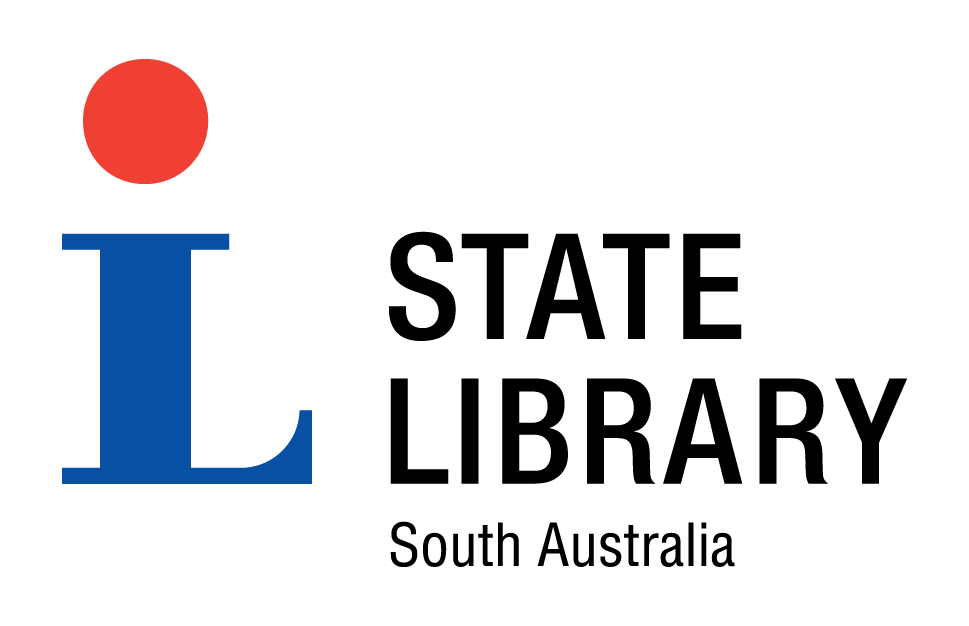
Mine Managers |
|||
|---|---|---|---|
| Title : | Mine Managers |

|
|
| Creator : | Duryea, photographer | ||
| Source : | B 682 | ||
| Date of creation : | 1871 | ||
| Format : | Photograph | ||
| Dimensions : | 60 x 97 mm | ||
| Contributor : | State Library of South Australia | ||
| Catalogue record | |||
| The State Library of South Australia is keen to find out more about SA Memory items. We encourage you to contact the Library if you have additional information about any of these items. | |||
| Copyright : | Reproduction rights are owned by State Library of South Australia. This image may be printed or saved for research or study. Use for any other purpose requires permission from the State Library of South Australia. To request approval, complete the Permission to publish form. |
| Description : |
Yorke Peninsula Mine Managers: Samuel Higgs top left, Thomas Cowling top right, Henry R. Hancock middle, John Warren bottom left and Malachitt Deeble Captain Henry Richard Hancock (1836-1919) arrived in South Australia in 1859 and initially worked as an assayer at the Wheal Ellen mine at Callington. He had intended to return to England but instead was persuaded to join a mining company at Moonta on Yorke Peninsula. In 1869, at the age of 28, he was appointed chief mining captain of the Moonta Mines, a position he held for 34 years. Later he simultaneously held the position of superintendent of the nearby Wallaroo mine. He was a trained surveyor, an exceptional assayer and responsible for many technical innovations. Failing health led to his retirement in 1898, at which point his eldest son, (Henry) Lipson Hancock took over as manager. Captain Hancock died at Burnside in 1919. Both he and his son Lipson were active in the Methodist Church. Captain John Warren came to Australia initially to work the Kurilla mine near Moonta. He also managed the Paramatta and Hamley mines on Yorke Peninsula before becoming one of Broken Hill's great mine managers (Payton p. 86). In his book Australia's little Cornwall, Oswald Pryor wrote that he earned a reputation as a shrewd and practical miner who, under a pen-name, can be credited with writing satirical verse. Thomas Cowling arrived in South Australia in 1862 aboard the Murray with Captain Harry East, who had been contracted to manage the New Cornwall copper mine at Kadina. As part of his appointment, Captain East had arranged for Cowling to accompany him as his pitman. (The pitman or lieutenant was the next highest position to mine manager or captain.) The two men had worked together for some years in Cornwall. Three years later Thomas Cowling became manager of the Wheal mine at Moonta. He was then able to send to England for his wife Sarah and three sons. He later became manager of the Yelta Mine and then the Hamley mine. Here he perfected changes to the mechanical jigging equipment which greatly improved the efficiency and cost of ore dressing. (For further information, see BRG 334 - Records of the Yelta Mining Company. These include a monthly cost sheet book, with monthly expenses; mine photograph; and a book of reports on mines around South Australia written by Cowling.) Thomas Cowling died in Adelaide on 12 January 1899. Malachitt (Malachi) Deeble was second in command of the Wallaroo and Moonta Mining Company. He was born at St. Austell, Cornwall where he learnt the mining trade. Before coming to South Australia he had jointly managed a Queensland cattle station. He worked for the Wallaroo and Moonta Mining Company for 38 of the 54 years he spent in South Australia and became second in command to Captain Hancock. Captain Deeble died in Adelaide in 1904, aged 83 years. He was survived by two sons and three daughters. The Narungga people were the original Aboriginal inhabitants of the Yorke Peninsula. Their country extends as far north as Port Broughton and east to the Hummock Ranges. European history of the area now known as the "Copper Triangle" began in 1851 with the leasing of pastoral land under the Waste Lands Act. Development of the area was initially slow due to a shortage of water, distance from major settlements, and the heavily wooded land. In 1857 the discovery of copper, near what is now Kadina, led to the first major influx of European settlers. This was followed a short time later with more discoveries of copper in the vicinity of present day Moonta. |
| Subjects | |
| Related names : | Higgs, Samuel Cowling, Thomas, 1827-1899 Hancock, Henry Richard, 1836-1919 Warren, John Deeble, Malachitt (Malachi), d. 1904 |
| Coverage year : | 1871 |
| Period : | 1852-1883 |
| Place : | Yorke Peninsula |
| Region : | Yorke Peninsula |
| Further reading : | Adelaide Observer, 27 February 1904, p3, col e Malachi Deeble obituary Payton, Philip J. Making Moonta : the invention of Australia's little Cornwall, Exeter : University of Exeter Press, 2007 Hancock, Diana C and Paterson, Roslyn M Cousin Jacks & Jennys: the Cornish in South Australia : Adelaide, S. Aust : Cornish Association of South Australia, 1995 Gee, Lionel CE and Brown, HYL Record of the Mines of South Australia, 4th edtion, Adelaide, 1908 Kartinyeri, Doreen Narrunga nation [Point Pearce, S Aust. : Doreen Kartinyeri] c2002 Paget, DL Of miners and Methodists : historical sketches of Yorke Peninsula & beyond North Yelta, S. Aust. : Mushroom Graphics, c1988 Pryor, O Australia's little Cornwall Adelaide, [S. Aust.] : Rigby, 1962 Wilson, JG Southern and central Yorke Peninsula : its industries, resources and attractions Adelaide : Sharples Bros., [1909] |
| Internet links : | Copper Coast Yorke Peninsula District Council PostcardsKadina and The Giant Wallaroo Copper Mine: In the Yorke Peninsula region of South Australia Postcards, Yorke Peninsula Aboriginal Cultural Tours of Innes National Park State Library of South Australia, Papers of the Hancock family, PRG 1185 State Library of South Australia, Papers of the Yelta Mining Company, BRG 334 South Australian History, Inneston |


